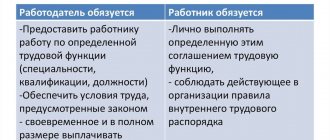Commentary on the article Judicial practice Comments 1. By a marriage contract, spouses have the right to change the regime of joint ownership established by law (Article 34 of this Code), establish a regime of joint, shared or separate ownership of all the property of the spouses, its individual types or the property of each spouse.
A marriage contract can be concluded both in relation to the existing and in relation to the future property of the spouses.
Spouses have the right to determine in a marriage contract their rights and obligations for mutual maintenance, ways of participating in each other’s income, and the procedure for each of them to bear family expenses; determine the property that will be transferred to each spouse in the event of divorce, and also include in the marriage contract any other provisions relating to the property relations of the spouses.
2. The rights and obligations provided for in a marriage contract may be limited to certain periods or made dependent on the occurrence or non-occurrence of certain conditions.
3. A marriage contract cannot limit the legal capacity or capacity of the spouses, their right to go to court to protect their rights; regulate personal non-property relations between spouses, the rights and obligations of spouses in relation to children; provide for provisions limiting the right of a disabled, needy spouse to receive maintenance; contain other conditions that place one of the spouses in an extremely unfavorable position or contradict the basic principles of family law.
Commentary to Art. 42 IC RF
1. The commented article is devoted to the content of the marriage contract or, in other words, the totality of its conditions, including the rights and obligations of the parties.
In practice, marriage contracts are concluded, as a rule, in relation to property subject to state or other special registration (real estate, motor vehicles, as well as shares in the authorized capital of business partnerships and companies, shares, securities), however, it is permissible to define agreement and the legal regime of other property, including household furnishings and household items.
Inclusion in the marriage contract of a condition on the ways in which the spouses can participate in each other’s income is advisable, first of all, in the case of establishing a separation regime in relation to property acquired during the marriage, as well as in the case when each of the spouses has their own sources of income.
Family expenses are a collective concept and are not detailed in the law. These can be both ordinary everyday family expenses (food, clothing, purchase of medicines, transportation costs, payment for housing and utilities, etc.), as well as expenses related to the education and maintenance of children, improvement of common property or the property of each of them. spouses, expenses for organizing vacations, etc.
Spouses can establish their rights and obligations for mutual maintenance by determining the procedure and amount of alimony payments to each other, as well as the forms and methods of such payments, both for the period of marriage and in the event of its dissolution. It should be borne in mind that a marriage contract cannot limit the right to receive maintenance for: 1) a disabled, needy spouse; 2) a wife during pregnancy and for three years from the date of birth of a common child, regardless of her need and ability to work; 3) a needy (not necessarily disabled) spouse caring for a common disabled child until the child reaches the age of 18 or a common disabled child from childhood of group I.
Personal non-property relations between spouses, as well as their personal rights in relation to children, cannot be the subject of a marriage contract. It is impossible to provide, for example, the forms and methods of spouses’ participation in raising children, as well as the distribution of responsibilities, participation in the household, etc.
In relation to children, a marriage contract can only include obligations of a property nature (for example, the acquisition of certain property, payment of education, etc.).
A marriage contract also cannot limit the right of a disabled, needy spouse to receive maintenance.
A marriage contract can be concluded not only in relation to property in kind, but also in relation to property that will be acquired in the future. It can be concluded before the marriage is registered and at any time during the marriage. Thus, a marriage contract can determine not all, but only part of the property rights and obligations of the spouses.
In a marriage contract, spouses can determine in advance to whom compensation will be paid and in what amount, and to whom certain things will be transferred after the divorce. If a marriage contract is concluded when the spouses have already lived in marriage for some time, then the spouses can determine in it the fate of the already acquired property.
2. According to paragraph 2 of the commented article, the rights and obligations provided for in a marriage contract may be limited to certain periods or made dependent on the occurrence or non-occurrence of certain conditions. Thus, the legislator directly says that a marriage contract can be a conditional transaction. However, one cannot help but pay attention to the fact that in cases where a marriage contract is concluded by persons entering into marriage (but not yet entered into), we are already talking about a conditional transaction (the condition is the very fact of marriage). Thus, adding another condition will make such a contract a doubly conditional transaction.
3. Clause 3 of the commented article lists conditions that cannot be included in a marriage contract. The first limitation is that a marriage contract cannot limit the legal capacity and capacity of the spouses (future spouses). This means that a marriage contract cannot contain provisions that limit the right of one of the parties to work, choose a profession, obtain an education, freedom of movement, etc. For example, a husband does not have the right to oblige his wife to leave work and take care of the household because he provides her with maintenance. Each of the spouses is free to choose their occupation, profession, place of stay and residence (see commentary to Article 31 of the Family Code).
Freedom of testament also cannot be limited by a marriage contract, i.e. One of the spouses cannot be obliged to bequeath the property belonging to him to a person (several persons) indicated by the other spouse. In this case, the citizen’s right to bequeath his property at his own discretion will be violated. Other rights and freedoms of citizens cannot be limited by a marriage contract. The legal capacity and capacity of a citizen can be limited only on the basis of law (for example, a citizen can be deprived of liberty for committing a criminal offense). Therefore, restriction of certain rights of one of the spouses by a marriage contract is not permissible.
A marriage contract cannot limit the right of spouses to go to court to protect their rights. Thus, one of the spouses does not have the right to oblige the other not to go to court with an application for the collection of alimony on the grounds that, according to the marriage contract, the apartment of the first spouse was transferred to his ownership. A marriage contract cannot prohibit a spouse from going to court with a demand for division of common property, etc.
A marriage contract can only be concluded regarding the property relations of the spouses, and accordingly, personal non-property relations cannot be the subject of a marriage contract. It is known that this is a fundamental difference between Russian legislation and the legislation of foreign countries, which allows for legal regulation of certain types of personal non-property relations. Thus, the marriage contract of the Greek tycoon Onassis and Jacqueline Kennedy stipulated the types of clothes that the latter should wear on certain occasions.
A marriage contract cannot, for example, oblige spouses to maintain marital fidelity. However, the property legal relations of spouses may be made dependent on the occurrence of certain conditions of a non-property nature. For example, a marriage contract may provide for the right of one of the spouses to compensation for moral damage in the event of adultery.
Spouses cannot regulate their rights and obligations in relation to children by a marriage contract. This means that the marriage contract cannot establish that in the event of a divorce the child will remain with the father or mother, or establish the procedure for communication between parents and children in the event of divorce. At the same time, the Family Code provides for the possibility of parents concluding special agreements on establishing the place of residence of children if the parents live separately and on the procedure for the exercise of parental rights by a parent living separately from the child (see comments to Articles 65 and 66 of the Family Code). In the absence of such agreements, these issues, in the event of a dispute, are resolved by the court, based on the interests of the child, with the participation of the guardianship and trusteeship authorities.
A marriage contract cannot limit the right of a disabled, needy spouse to receive maintenance, since in accordance with the law, spouses are obliged to financially support each other, and in the event of refusal of such support and the absence of an agreement between the spouses on the payment of alimony, the disabled, needy spouse has the right to demand alimony from the other spouse in court (Article 89 of the Criminal Code). No waiver of this right is valid.
Paragraph 3 of the commented article also contains the condition that any conditions that put one of the spouses in an extremely unfavorable position or contradict the basic principles of family law also cannot be included in the marriage contract.
Judicial practice recognizes as such an agreement under which one of the spouses is completely deprived of the right of ownership of property acquired by the spouses during the marriage (clause 15 of the Resolution of the Plenum of the Supreme Court of the Russian Federation of November 5, 1998 No. 15 “On the application by courts of legislation when considering cases of divorce marriage").
A marriage contract should not contradict the basic principles of family law. In particular, the terms of the marriage contract should not contradict the principle of building marital relations on the basis of mutual love and respect (for example, provide for the fulfillment of marital duties on a reimbursable basis).
Article 42. Contents of the marriage contract
Commentary on Article 42
1. The contractual regime should be understood as the procedure in force in relation to property acquired by spouses during marriage, which, in contrast to the legal regime, is established by the spouses themselves in the marriage contract. All rights and obligations provided for in the contract may be limited by time limits or depend on the occurrence or non-occurrence of certain conditions. In accordance with paragraph 1 of the commented article, spouses have the right to change the regime of joint ownership established by law by establishing a regime of joint, shared or separate property. The alternative regimes listed in this article can be established by spouses both for all their property and for its individual types or for the property of each spouse. Thus, by means of a marriage contract, spouses have the right to change not only the regime of joint ownership established by law (Article 34 of the RF IC), but also the property regime of each of the spouses (Art. 36 of the RF IC). For example, spouses may determine in a marriage contract that the owner of the property subject to registration is the one in whose name the property is registered. The issue of the scope of the marriage contract is decided directly at the discretion of the spouses themselves or the persons entering into marriage. For example, spouses can enter into a marriage contract consisting of only one clause: establishing a shared ownership regime for all property acquired during marriage, defining the share of each of them. The choice of one or another contractual regime is directly related to what legal regime the property is subject to. If the marriage contract establishes the regime of property acquired during marriage, then the spouses have the right to choose either the regime of separate property or shared property. If the marriage contract establishes the regime of property that legally belongs to each of the spouses, then the spouses have the right to choose the regime of joint or shared ownership. The separation regime, which applies to property that belonged to each spouse before marriage, as well as property received during marriage for known reasons (Article 36 of the Family Code), usually meets the interests of the spouses and does not need to be changed in the marriage contract. However, at the request of the spouses, the marriage contract may list large movable property that belonged to each of them before marriage, in order to exclude any future disputes on this matter. And only in some cases does it seem appropriate to establish in the contract a regime of community for certain things that, by law, belong to the separate property of the spouses, since in these cases the regime of separation does not fully meet the interests of both spouses. The regime that best suits the interests of the spouses is the regime of limited community rather than complete separation, since it promotes maximum protection of the interests of the owner and does not complicate life with the need to constantly keep the expenses of the other spouse under control. However, regardless of what property regime is chosen by the spouses, it should be remembered that in relation to jointly acquired property, the legal regime of which is not determined in the contract, the legal regime of joint ownership remains in force. It is also necessary to keep in mind that a marriage contract can also be concluded in relation to the future property of the spouses. In the latter case, the provisions of the agreement are of a general nature, and the rights and obligations of the parties will not arise until they have the property specified in the agreement. In addition to changing the legal regime of property, a marriage contract may contain the conditions listed in paragraph. 3 p. 1 art. 42 IC RF. In accordance with these provisions, spouses have the right to determine in the contract the rights and obligations for mutual maintenance both for the period of marriage and in the event of its dissolution. At the same time, spouses have the right to deviate from the legal order of mutual alimony obligations (Articles 89 - 92 of the RF IC), according to which the grounds for the emergence of rights and obligations for mutual maintenance are the disability and neediness of the spouse applying for such maintenance. A needy but able-bodied spouse (former spouse) by law does not have the right to support from the spouse (former spouse), except for the cases provided for in paragraph. 3, 4 p. 2 art. 89 RF IC. In contrast, a marriage contract allows the spouses themselves to decide the issue of the grounds for mutual maintenance. For example, in a marriage contract, they can determine that one of the spouses who was forced, in the name of the interests of the family, to leave his profession or give up his career (for the sake of raising common children), in the event of divorce, will be able to receive from the other spouse the maintenance necessary to to be able to catch up professionally. Also, based on the commented norm, spouses have the right to determine in the contract ways of participating in each other’s income. As a rule, income refers to cash or other receipts from an item due to its participation in civil circulation (this can be dividends from shares and securities, interest on bank deposits, rent, etc.). In some cases, the term “income” is used in a broader sense, also covering in-kind receipts from a thing, that is, its fruits, for example, harvest from a personal plot, offspring of domestic animals, etc. (Article 305 of the Civil Code of the Russian Federation). By law, income and fruits belong to the person who owns the thing that produces them (Article 136 of the Civil Code of the Russian Federation), however, in a marriage contract, the spouses have the right to change this procedure established by law, establishing, for example, that interest on one of the bank deposits, belonging to the husband are their joint property. In addition to determining participation in income, spouses can determine in the contract the procedure for incurring family expenses. Family expenses are a fairly broad concept and are not detailed in the law. In practice, these include various types of expenses, the need for which exists in a given family and depends, first of all, on the level of its material support, which, in turn, determines the level of the family’s capabilities and needs. Spouses or persons intending to get married have the right to regulate in a marriage contract each other's housing rights and obligations in the event of divorce, for example, issues related to the emergence and termination of the right to use residential premises (apartment, residential building, room). For example, in a marriage contract, spouses have the right to establish a period during which the spouse, whose right to use housing has ceased due to divorce, undertakes to vacate the living space of the other spouse, including an extract from the residential premises in which he was registered, within a certain period. If one spouse fails to comply with this condition, the other has the right to go to court. In the marriage contract, spouses can also establish who is responsible for family obligations and how. The marriage contract can also determine the property that will be transferred to each spouse in the event of divorce. However, this condition of the marriage contract should not be confused with the right granted to spouses upon divorce in court to submit for consideration by the court an agreement on the division of the common property of the spouses (Clause 1 of Article 24 of the RF IC). Firstly, there is a formal difference between these documents, since a marriage contract is subject to mandatory notarization, regardless of the number and content of its provisions, while the law does not require notarization of an agreement on the division of property. Secondly, the provision of the marriage contract defining the property that will be transferred to each of the spouses in the event of divorce is prospective (i.e., valid for the future), since at the time of concluding the marriage contract the spouses (including future) do not know whether their marriage will break up in the future or not, while in paragraph 1 of Art. 24 of the RF IC - the divorce situation is obvious. It should also be taken into account that the list of issues that spouses have the right to regulate in a marriage contract is not exhaustive, since in addition to the above, the law allows the inclusion in a marriage contract of any other provisions relating to the property relations of the spouses. 2. Paragraph 2 of this article establishes a rule according to which the rights and obligations provided for in a marriage contract may be made dependent on the occurrence or non-occurrence of certain conditions of various, including non-property, nature. Thus, a marriage contract can be concluded under a suspensive or a dispensable condition. In accordance with the provisions of paragraph 1 of Art. 157 of the Civil Code of the Russian Federation, an agreement is considered completed under a suspensive condition if the parties have made the emergence of rights and obligations dependent on a circumstance regarding which it is unknown whether it will occur or not. For example, in the marriage contract, the spouses indicated that if they have a child during the first two years of marriage, ownership of the car purchased during the marriage will pass to the wife. According to paragraph 2 of Art. 157 of the Civil Code of the Russian Federation, an agreement is considered completed under a severable condition if the parties have made the termination of rights and obligations dependent on a circumstance regarding which it is unknown whether it will occur or not. For example, in a marriage contract, spouses can determine that if the motive for divorce is the unworthy behavior of one of them (adultery, immoral behavior, etc.), then the division of property acquired during the marriage will be carried out based on the shared regime, and not joint property, and the share of the guilty spouse will be less than that of the conscientious spouse. 3. Paragraph 3 of this article establishes which issues cannot be resolved in a marriage contract. Thus, an agreement cannot: - limit the legal capacity of spouses or persons entering into marriage (that is, the ability to exercise any rights or bear responsibilities), their right to go to court to protect their rights; — regulate personal non-property relations between spouses and their rights and obligations in relation to children; — limit the right of a disabled spouse to receive maintenance; - provide for other conditions that are contrary to family law. The most serious limitation in this case is that, by law, the terms of the marriage contract must in no case worsen the position of either spouse, or place one of the spouses in an extremely unfavorable position. For example, a condition of a marriage contract according to which one of the spouses refuses to go to court for protection of property rights is illegal, and therefore this obligation cannot prevent him from going to court. In accordance with the provisions of Art. 40 of the Family Code, the content of a marriage contract can only stipulate property relations between spouses, otherwise the marriage contract becomes void. It follows that the marriage contract cannot include any provisions regarding children, including property ones. According to this Family Code, in order to resolve issues related to the maintenance of minor children, parents have the right to enter into a child support agreement (Articles 99 - 105 of the RF IC), and the place of residence of children in the event of separation of parents, as well as the procedure for the exercise of parental rights by the parent, living separately from the child, can be determined by a special agreement of the parents (clause 3 of article 65 of the RF IC, clause 2 of article 66 of the RF IC). If the content of the marriage contract contains any violation of the rules established by law, for example, it contains provisions on children, it is void. In the same way, the question of the validity of the marriage contract is resolved if the marriage contract contains a condition that puts one of the parties in a clearly disadvantageous position. On these grounds, a marriage contract may be declared invalid by the court at the request of an interested party.
Back | Contents | Read more
Judicial practice under Article 42 of the RF IC:
Decision of the Supreme Court: Determination N 88-КГ16-1 of 06/07/2016 Judicial Collegium for Civil Cases, cassation
Decision of the Supreme Court: Determination No. 4-КГ16-74 of 02/28/2017 Judicial Collegium for Civil Cases, cassation
Decision of the Supreme Court: Determination No. 4-КГ16-42 of November 29, 2016 Judicial Collegium for Civil Cases, cassation
Decision of the Supreme Court: Determination N 18-КГ15-203 dated November 24, 2015 Judicial Collegium for Civil Cases, cassation
Decision of the Supreme Court: Determination N 78-КГ14-43 of 01/27/2015 Judicial Collegium for Civil Cases, cassation





